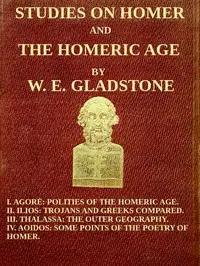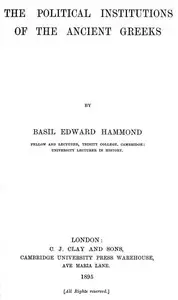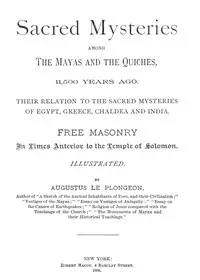"The Polity of the Athenians and the Lacedaemonians" by Xenophon is a historical study contrasting the governments and social systems of Athens and Sparta in ancient Greece. It investigates Athenian democracy, where many citizens participate in decisions, and Spartan oligarchy, ruled by a few. The book begins with Xenophon's look into the Athenian system expressing concern that it benefits the poor over the rich. He points out that Athens' naval power depends on its poorer citizens. The author talks about how Athens' system allows wide participation and balances power. This is a start for a deep comparison of Athens' democratic ways and Sparta's military rule.

The Polity of the Athenians and the Lacedaemonians
By Xenophon
Witness the clash of civilizations as one writer analyzes the radical differences between a democracy fueled by its common people and a society strictly ruled by its warriors.
Summary
About the AuthorXenophon of Athens was a Greek military leader, philosopher, and historian. At the age of 30, he was elected as one of the leaders of the retreating Greek mercenaries, the Ten Thousand, who had been part of Cyrus's attempt to seize control of the Achaemenid Empire. As the military historian Theodore Ayrault Dodge wrote, "the centuries since have devised nothing to surpass the genius of this warrior". Xenophon established precedents for many logistical operations and was among the first to describe strategic flanking maneuvers and feints in combat.
Xenophon of Athens was a Greek military leader, philosopher, and historian. At the age of 30, he was elected as one of the leaders of the retreating Greek mercenaries, the Ten Thousand, who had been part of Cyrus's attempt to seize control of the Achaemenid Empire. As the military historian Theodore Ayrault Dodge wrote, "the centuries since have devised nothing to surpass the genius of this warrior". Xenophon established precedents for many logistical operations and was among the first to describe strategic flanking maneuvers and feints in combat.



















